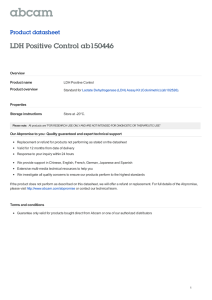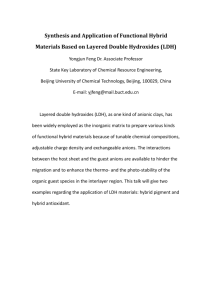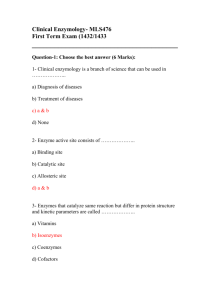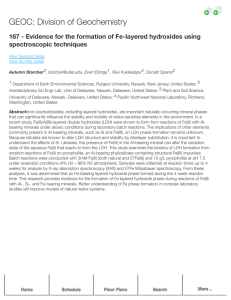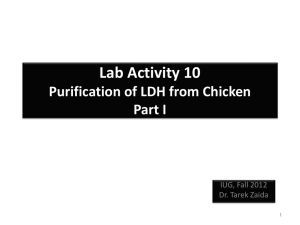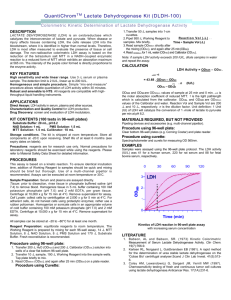Medical Encyclopedia: LDH Page 1 of 2 Medical Encyclopedia: LDH (Print Version)
advertisement
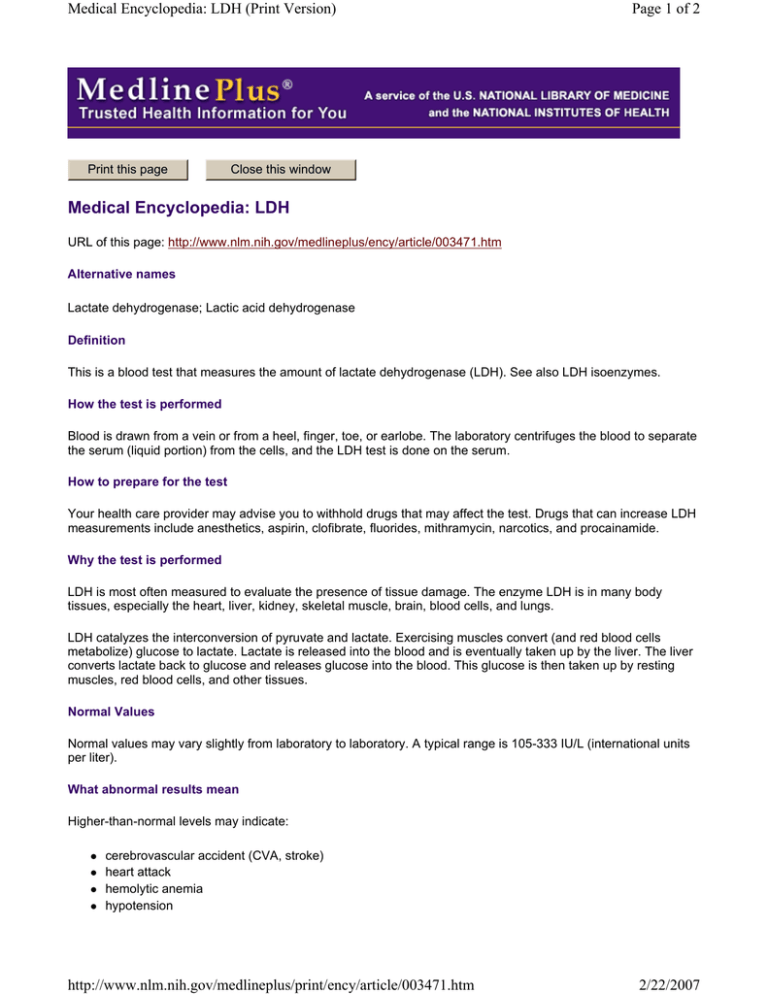
Medical Encyclopedia: LDH (Print Version) Print this page Page 1 of 2 Close this window Medical Encyclopedia: LDH URL of this page: http://www.nlm.nih.gov/medlineplus/ency/article/003471.htm Alternative names Lactate dehydrogenase; Lactic acid dehydrogenase Definition This is a blood test that measures the amount of lactate dehydrogenase (LDH). See also LDH isoenzymes. How the test is performed Blood is drawn from a vein or from a heel, finger, toe, or earlobe. The laboratory centrifuges the blood to separate the serum (liquid portion) from the cells, and the LDH test is done on the serum. How to prepare for the test Your health care provider may advise you to withhold drugs that may affect the test. Drugs that can increase LDH measurements include anesthetics, aspirin, clofibrate, fluorides, mithramycin, narcotics, and procainamide. Why the test is performed LDH is most often measured to evaluate the presence of tissue damage. The enzyme LDH is in many body tissues, especially the heart, liver, kidney, skeletal muscle, brain, blood cells, and lungs. LDH catalyzes the interconversion of pyruvate and lactate. Exercising muscles convert (and red blood cells metabolize) glucose to lactate. Lactate is released into the blood and is eventually taken up by the liver. The liver converts lactate back to glucose and releases glucose into the blood. This glucose is then taken up by resting muscles, red blood cells, and other tissues. Normal Values Normal values may vary slightly from laboratory to laboratory. A typical range is 105-333 IU/L (international units per liter). What abnormal results mean Higher-than-normal levels may indicate: z z z z cerebrovascular accident (CVA, stroke) heart attack hemolytic anemia hypotension http://www.nlm.nih.gov/medlineplus/print/ency/article/003471.htm 2/22/2007 Medical Encyclopedia: LDH (Print Version) z z z z z z z z Page 2 of 2 infectious mononucleosis intestinal ischemia (blood deficiency) and infarction (tissue death) liver disease (for example, hepatitis) muscle injury muscular dystrophy neoplastic (new abnormal tissue formation) states pancreatitis pulmonary infarction (tissue death) If the LDH level is elevated, the health care provider will often recommend measurement of LDH isoenzymes. Additional conditions under which the test may be performed: z z z anemia of vitamin B-12 deficiency megaloblastic anemia pernicious anemia Update Date: 4/15/2005 Updated by: Rita Nanda, MD, Department of Medicine, Section of Hematology/Oncology, University of Chicago Medical Center, Chicago, IL. Review provided by VeriMed Healthcare Network. A.D.A.M., Inc. is accredited by URAC, also known as the American Accreditation HealthCare Commission (www.urac.org). URAC's accreditation program is the first of its kind, requiring compliance with 53 standards of quality and accountability, verified by independent audit. A.D.A.M. is among the first to achieve this important distinction for online health information and services. Learn more about A.D.A.M.'s editorial process. A.D.A.M. is also a founding member of Hi-Ethics (www.hiethics.com) and subscribes to the principles of the Health on the Net Foundation (www.hon.ch). The information provided should not be used during any medical emergency or for the diagnosis or treatment of any medical condition. A licensed physician should be consulted for diagnosis and treatment of any and all medical conditions. Call 911 for all medical emergencies. Adam makes no representation or warranty regarding the accuracy, reliability, completeness, currentness, or timeliness of the content, text or graphics. Links to other sites are provided for information only -- they do not constitute endorsements of those other sites. Copyright 2005, A.D.A.M., Inc. Any duplication or distribution of the information contained herein is strictly prohibited. http://www.nlm.nih.gov/medlineplus/print/ency/article/003471.htm 2/22/2007
